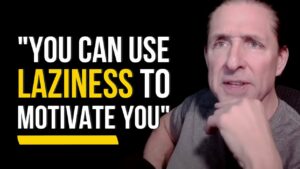In this video, dentist Dr. Daniel Rubenstein answers some debated questions about dental health. He explains that wetting the toothbrush before or after applying toothpaste is a personal preference, but recommends wetting it first to remove bacteria. He advises keeping toothbrushes away from toilets to avoid particles settling on them, and suggests using hot water for cleaning. Rubenstein cautions against rinsing the mouth immediately after brushing as it removes beneficial ingredients in toothpaste. He recommends brushing before breakfast to remove overnight bacteria, especially if not an expert at brushing and flossing. Finally, he emphasizes the importance of regular brushing to prevent gum disease and irreversible damage, citing the harmful effects of chewing ice.

Our Summaries are written by our own AI Infrastructure, to save you time on your Health Journey!
Key Insights:
- There is no correct order for wetting the toothbrush before or after putting toothpaste on it
- It’s recommended to keep your toothbrush away from the toilet to avoid bacteria particles
- Rinsing your mouth with water right after brushing your teeth can remove the beneficial ingredients in toothpaste
- Using a pea-sized amount of toothpaste is sufficient
- It’s better to brush your teeth before eating breakfast to remove overnight bacteria
- Not brushing your teeth can lead to plaque, gum disease, and irreversible damage
- Chewing ice can fracture your teeth, so it’s advised to avoid it
Transcript
What’s up everybody? We’re talking everything you need to know about the mouth. That’s right, this is dentist Dr. Daniel Rubenstein. He is an NYU graduate of the dental school and he went to Yale for his residency. And fun fact, his mother, his father, and his brother are also dentists. I guess growing up, you had to make sure those teeth were right, huh? Yeah, I mean, my parents, they said if I don’t become a dentist, they’ll pull my teeth out. So now I’m just… (laughs).
We are about to ask the most debated questions ever when it comes to your dental health. I mean, it’s broken up households. Okay, Dr. Rubinstein, do you wet your toothbrush before you put the toothpaste on it or do you wet it after you put the toothpaste on it? I mean, arguments, fights, all kinds of things. That’s a tough, tough question. Yeah, a lot of people have debated on it, and I’m here to set the record straight. So the bottom line is there is no correct order to that. As long as you do brush your teeth and use toothpaste, go ahead and enjoy it in any way that you can. What I do is I wet the toothbrush first because in my mind, I want to remove any bacteria or debris from the night before, and then I put the toothpaste and then I wet the toothbrush even more. All right, bam, one point for Renatha. What about you? So for me, I wet the brush first and then I put the toothpaste on, and like you, yeah, I wet it again. We got this, bye, guys.
So, Dr. Rubenstein, I keep my toothbrush in a case at home, inside of a medicine cabinet, and when I travel, also keep it in a case. Should you keep it in a case or should it be out in the air? So when the toilet flushes, the particles from the toilet get on top, so you hit the nail on the head. First off, I would keep your toothbrush away from the toilet so those particles do not land on it. Secondly, traveling with the case is acceptable. I don’t recommend keeping a case in the bathroom because that case harbors also a lot of bacteria, unless you really are thorough with cleaning it. My water at home, the hot is hot, and so I always do that first before I use it. And I also keep my case clean with the hot water.
Okay, after you brush your teeth, what’s the mistake people are making? When people brush their teeth, they use toothpaste that has a lot of special ingredients that help strengthen your enamel and keep your gums healthy. When you rinse your mouth with water right after you brush your teeth, that kind of takes away all those ingredients that you’ve marinated in your mouth and on your teeth. So for those that are rinsing their mouth right after they brush their teeth, do not do that unless you don’t care about getting rid of those beautiful ingredients that you just placed on your teeth. Really, I mean, that’s fascinating because, I mean, it may be like I put a bunch of toothpaste on my toothbrush, so I’ve always got a whole bunch of toothpaste residue in my mouth. So I have to rinse. You just need a pea size of toothpaste. You do not need a whole glob of toothpaste. It’s the little bit of toothpaste that does the trick.
What’s better, brushing first then eating breakfast or brushing after breakfast? Give us the skivvy. So we just took a poll in the room that we’re in with our team here, and many of the people in this room eat first and then brush their teeth. We didn’t get my answer though. We didn’t get my answer yet. Go for it. I brush and then I eat something. That I do recommend is to brush your teeth first and then you eat. Why? Because many of us are not experts in brushing and flossing. So overnight, your mouth is marinated with the bacteria that you do not remove. So you have a dry mouth, you have the extra bacteria there. And guess what? Bacteria loves sugar, carbs, basically what you’re having for breakfast. So by feeding the bacteria breakfast first and then brushing your teeth, you’re doing kind of a disservice for your oral health.
So we all know how important it is to brush your teeth every day, but I’m curious, what happens if you stop brushing your teeth? Nothing happens to your teeth the first day you stop brushing your teeth. The second day, you start brushing, the damage happens as a cumulative. So the first week, you could develop plaque, which causes gum disease. So your gums go from really nice and pink to now red and swollen. But that could be reversible, right? So as long as you brush that off and clean it properly, your gingivitis, your gum disease, will go back to healthy gums. But if you’re now being really stubborn and you do not want to brush your teeth and you don’t want to floss, that gingivitis could become periodontitis, which is now irreversible. You start losing bone, you start losing gum. That is damage that you can’t fix. Also, in extreme, extreme cases, if you do not brush your teeth for a very long time, it can lead to something like this. So you see this right over here, this is actually calculus. After a while, when you have a buildup of plaque, if you do not remove it, it becomes hard like a rock. So calculus is not only math, no. But if it gets built up and you have to get a special tool and go to the dentist to make sure you take care of it, do not do it yourself. Let the professionals get rid of it and heal that area for you. Okay, this professional knows what he’s talking about.
Is chewing ice bad for your teeth? Yes, do not chew ice. I know it might feel good in the mouth, but it could actually fracture your teeth. And that’s one of the biggest things that I notice in my office when people come in with fractured molars or chips on teeth, they chew ice. So stay away from chewing ice. Your teeth are not tools.
Comment below with your pressing health questions, and of course, hit subscribe here to the health channel to get more answers from medical experts on the questions you want to know. Dr. Rubenstein, thank you so much for joining us. Remember to see your dentist for any medical advice, right, Dr. Rubenstein? Yes, ma’am. Okay, now let me show you. Okay, so there is something going on back here. Okay, again. Yeah, I know. Another one is coming. (laughs).





